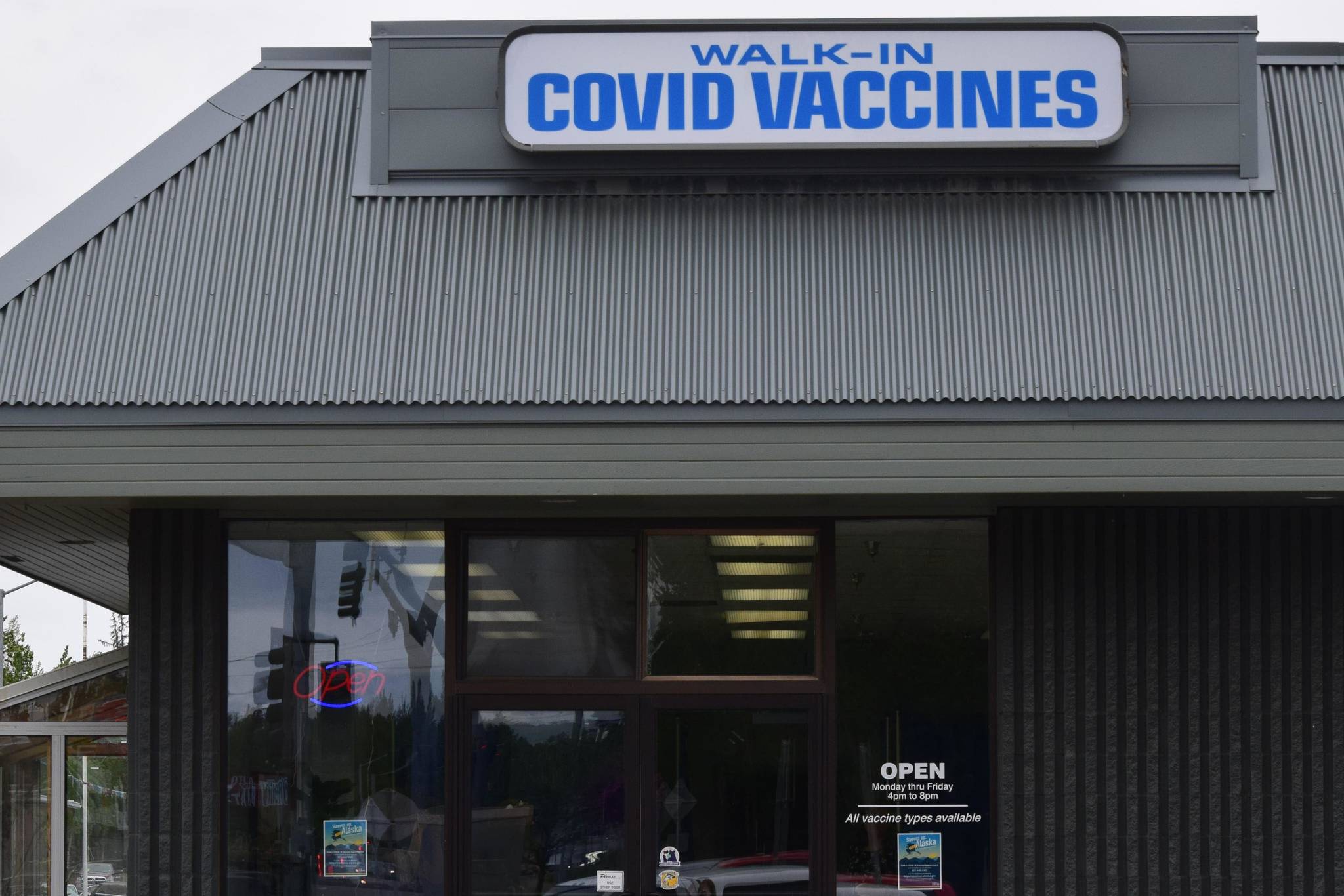Alaska has been seeing an increase in positive COVID-19 cases over the past few weeks, health officials said during a press briefing last Thursday.
Dr. Anne Zink, the chief medical officer for the state, said vaccines are the most useful tool at Alaskans’ disposal to combat the pandemic.
“I hope Alaskans take this opportunity,” she said during the briefing. “This is not over, and they are making a choice between getting COVID or getting the vaccine.”
The state Department of Health and Social Services reported two resident deaths on Monday and two last Friday — two Anchorage women, one in her 40s and one in her 70s — and an Anchorage male in his 80s. A COVID death of a Prince of Wales-Hyder man in his 80s was identified through death certificate review. Since the pandemic began, 374 Alaskan residents have died of COVID-19.
“Initially it was a little hard to see what direction we were going to go, but it does seem like some of our regions are starting to pick up,” Zink said last Thursday. “It’s been a humbling reminder recently of the fact that we continue to be in this pandemic.”
Statewide, DHSS reported 174 new positive COVID cases on Monday, including 26 in the Kenai Peninsula Borough.
The Kenai Peninsula Borough North reported seven, Soldotna had six, Homer and Seward each saw four, Kenai had another three, and Sterling reported two.
With the increase in cases in the recent weeks, Alaska moved from the low to intermediate alert category, which is defined as having between five and 10 positive COVID cases per 100,000 people. The statewide average was 6.37 on Monday, with the Kenai Peninsula Borough jumping to the intermediate risk as well with an average of seven per 100,000.
“We want to make sure Alaskans have the tools to keep themselves and their communities healthier overall,” Zink said during last Thursday’s briefing. “Getting vaccinated is a much safer choice at preventing illness and minimizing the impacts of this virus on your life.”
As of Monday, 51% of Alaskans 12 and older were fully vaccinated against COVID-19. The Kenai Peninsula falls well below the statewide average, with a vaccination rate of 43% of the eligible population. The Matanuska-Susitna Borough is the only area with a lower average, at 35%.
“We really need to get those numbers up higher especially as we see the emergence of the delta variant,” State Epidemiologist Joe McLaughlin said during the press briefing last Thursday.
According to the DHSS officials, around half of new COVID cases in the United States are caused by the delta variant. This, they said, is alarming because early data suggests that this particular strain is more transmissible and causes more severe illness.
“Alaska, unfortunately, is following that trend as well,” Zink said last Thursday. She also emphasized that hospitalization and death rates are still down even as cases increase again, which medical professionals widely agree is due to the efficacy of the authorized COVID vaccines.
The DHSS team reported an additional 24 positive delta variant COVID cases last week, increasing the statewide number to 37 overall. The first delta case was identified in Alaska on May 30.
Data on vaccine efficacy against multiple COVID variants is encouraging, however. Early numbers from the Centers for Disease Control and Prevention show between a 73% and 100% efficacy rate in the Pfizer-BioNTech and Johnson & Johnson/Janssen shots at preventing severe and critical coronavirus disease due to the delta variant.
“Getting people vaccinated now before fall starts is going to make a big difference in our ability to prevent a big uptick in cases due to the delta variant, as well as any other variants that may emerge,” McLaughlin said during last Thursday’s briefing.
Especially as health officials are looking ahead to the health of kids for back-to-school season, they are advocating for an increase in not only COVID jabs, but all routine vaccinations.
“We want to make sure that they’re safe and they’re healthy,” Zink said last Thursday. “So this is the time to be thinking about what that looks like.”
She encouraged parents and guardians to plan ahead for checkups, routine vaccination appointments and to do research about mental health resources available for kids.
Anyone 12 years and older is eligible to receive the Pfizer COVID-19 vaccine. The Moderna and Janssen shots are authorized for anyone 18 years and older.
Zink said during last Thursday’s briefing that although the hospitalization and death numbers are trending downward, the state still has some work to do in order to put the pandemic in the rearview.
“It’s great to be able to be on the offense, but unfortunately we would all love [it] to be over,” she said. “There’s a risk associated to everything we do but it’s a risk-benefit you have to choose.”
Reach reporter Camille Botello at camille.botello@peninsulaclarion.com.


